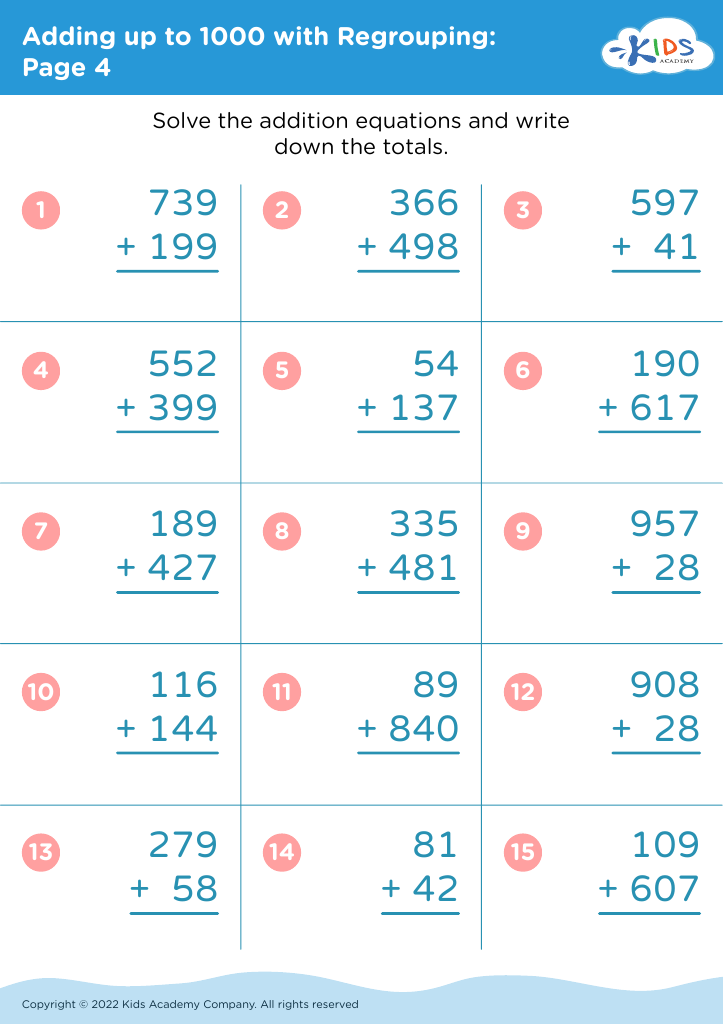Fraction comparison Adding up to 1000 with Regrouping Worksheets for Ages 4-7
3 filtered results
-
From - To
Discover our engaging Fraction Comparison worksheets designed for children aged 4-7, focusing on adding up to 1000 with regrouping. These resources help young learners build essential math skills while comparing fractions in a fun and interactive way. With colorful visuals and intuitive exercises, kids will grasp concepts like numerators, denominators, and equivalent fractions effortlessly. Each worksheet encourages critical thinking and problem-solving, making math enjoyable for early learners. Perfect for classroom activities or home practice, these worksheets pave the way for a solid foundation in math. Join us in empowering the next generation of mathematicians through enjoyable learning experiences!
Understanding fraction comparison and addition with regrouping is crucial for young learners aged 4-7 as it lays the foundation for their mathematical development. When parents or teachers prioritize these concepts, they help children make sense of numbers and develop critical thinking skills.
Firstly, fractions and regrouping introduce children to the idea of parts of a whole, which enhances their ability to comprehend divisions and distributions in daily life. For example, sharing a pizza among friends teaches them about equal parts and fair sharing. This practical application fosters a love for learning and problem-solving.
Furthermore, as children encounter addition with regrouping, they practice carrying over numbers, which enhances their ability to perform calculations efficiently. This skill is not only fundamental in math but also aids in everyday situations, such as handling money or measuring ingredients.
By focusing on these concepts early on, parents and teachers will help build confidence in students, establishing a positive attitude towards mathematics. Mastering these skills will ensure that learners are well-prepared for more complex concepts in the future, promoting academic success and a lifelong appreciation for mathematics. Investing in their understanding now creates a strong foundation for more advanced learning down the line.













